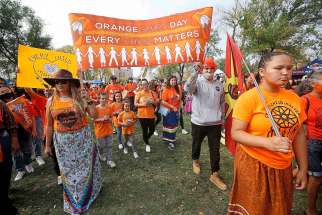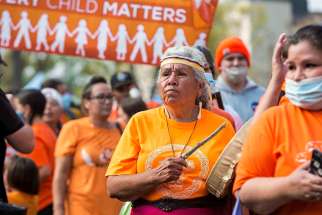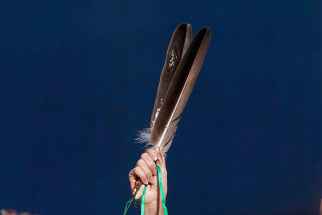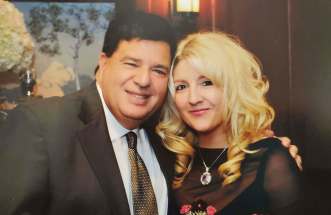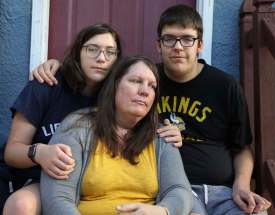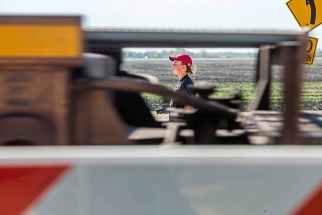Heavy hearts, happy hearts Thousands converge in orange crush to mourn the children who never went home and delight in the children who do
Read this article for free:
or
Already have an account? Log in here »
To continue reading, please subscribe:
Monthly Digital Subscription
$0 for the first 4 weeks*
- Enjoy unlimited reading on winnipegfreepress.com
- Read the E-Edition, our digital replica newspaper
- Access News Break, our award-winning app
- Play interactive puzzles
*No charge for 4 weeks then price increases to the regular rate of $19.00 plus GST every four weeks. Offer available to new and qualified returning subscribers only. Cancel any time.
Monthly Digital Subscription
$4.75/week*
- Enjoy unlimited reading on winnipegfreepress.com
- Read the E-Edition, our digital replica newspaper
- Access News Break, our award-winning app
- Play interactive puzzles
*Billed as $19 plus GST every four weeks. Cancel any time.
To continue reading, please subscribe:
Add Free Press access to your Brandon Sun subscription for only an additional
$1 for the first 4 weeks*
*Your next subscription payment will increase by $1.00 and you will be charged $16.99 plus GST for four weeks. After four weeks, your payment will increase to $23.99 plus GST every four weeks.
Read unlimited articles for free today:
or
Already have an account? Log in here »
Hey there, time traveller!
This article was published 30/09/2021 (1533 days ago), so information in it may no longer be current.
The marchers arrive at St. John’s Park at almost exactly the minute predicted. They arrive in a great orange wave, all wearing shirts the same colour. They arrive led by the drum, and the riders on horseback, and the tendrils of smudge that curl over Main Street, cleansing the path to the park where the powwow is underway.
“Are we all going to fit into the park, guys?” one young woman gasps, laughing as she surveys the scene.
In a way they do, in a way they don’t. For hours, the people flow into the park from all directions. They flow by the hundreds, and then the thousands. They flow until the fields show less green than orange, until lines for the porta-potties stretch into the dozens, until the whole park is alive with laughter and conversation.
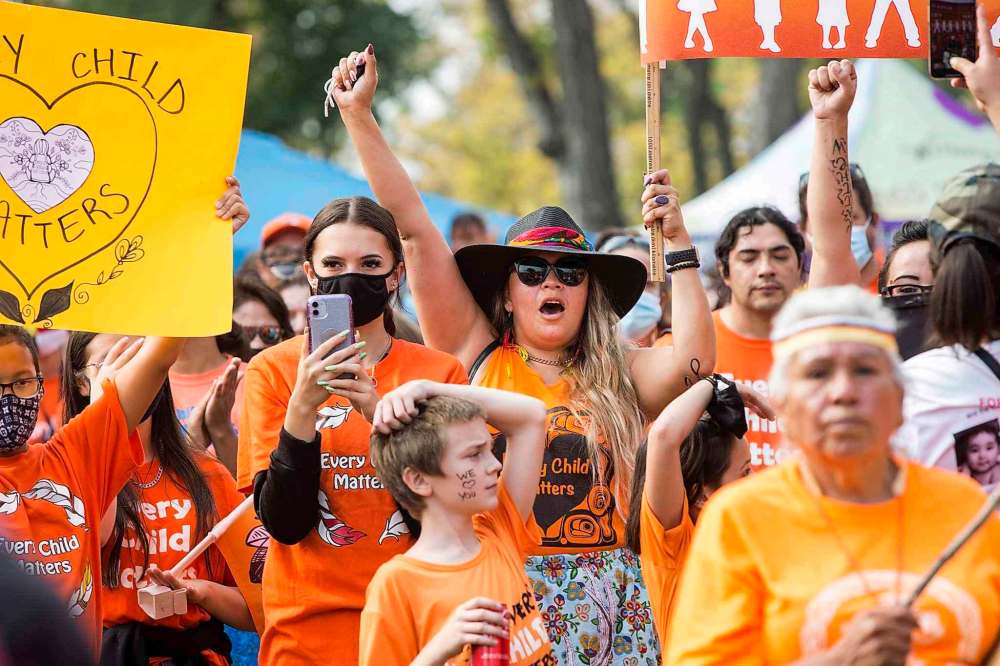
The crowd looks like Manitoba. It contains faces of all ages, all races. Most of the people here are Indigenous, but on this day they are joined in solidarity by people of all nations; a movement, generations in the making, to call for a way forward, to call for action on reconciliation, to call for justice for Indigenous people.
So many people turn out on this Thursday to share in that call, the park itself almost cannot hold them.
They surround the white tent at the event’s heart until the dancers inside can be seen only by the feathers crowning their regalia, if at all. Until the beat of the drums can be heard only as a muffled thrum, if at all. Until the voices of the powwow’s emcee and speakers are muted and lost to most watching from outside the tent.
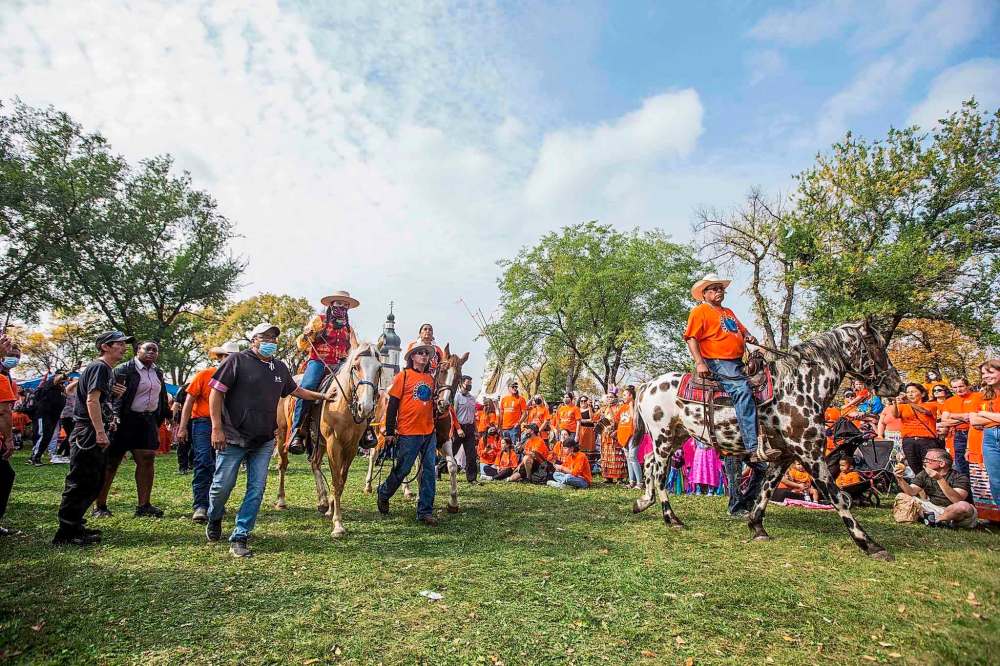
That’s OK, though. Because on this, the first National Day for Truth and Reconciliation, the crowd has come together in memory of the children and the survivors. They’ve come together to mourn what was taken, and also to honour what persisted: Indigenous nations, cultures and spirit.
To see that spirit rising, vibrant and full of life, all one needs to do is watch the children playing.
On the park’s eastern edge, the kids play in sight of the Red River. They play in sight of watchful parents. They wear orange shirts, some a few sizes too big. They spin and swing, begging patient older siblings to push them just a little bit higher, shrieking with joy when that wish is granted.
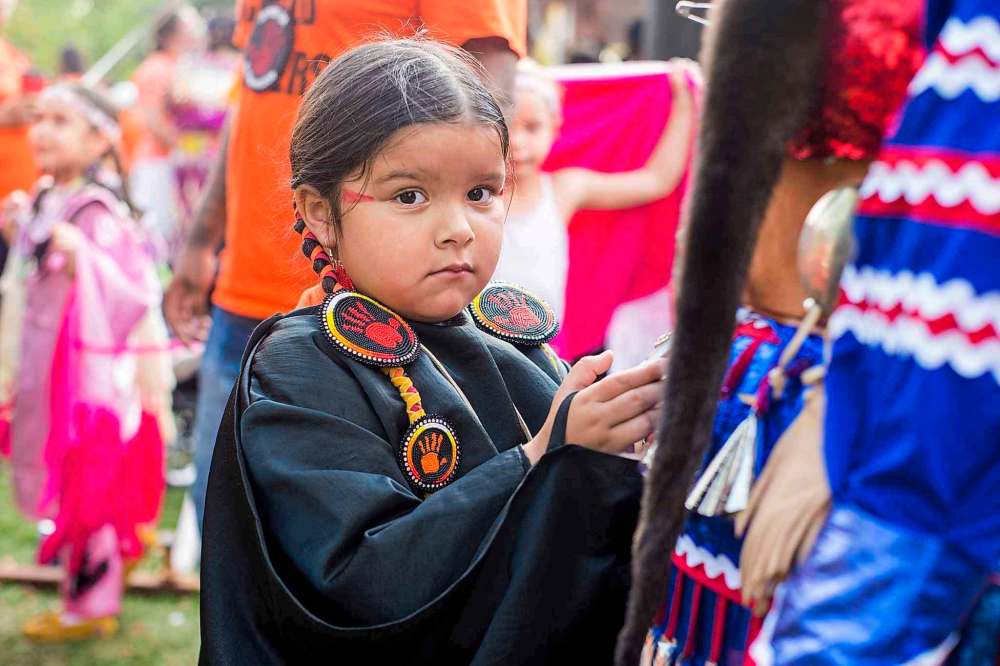
A boy clambers to the top of a climbing block, then turns to beam proudly at his father.
“Remember when I did this?” the child calls out.
His father looks up with a slight grimace. “I know,” he replies. “But be careful.”
Under the trees, a boy blows bubbles that scatter over the grass. Behind the white tent, a girl, about six years old, stands straight and proud in her jingle dress. Nearby a man cranes his neck for a glimpse of the dancers, while his son holds his hand; the boy is happily chattering away about what he would do if he had superpowers.
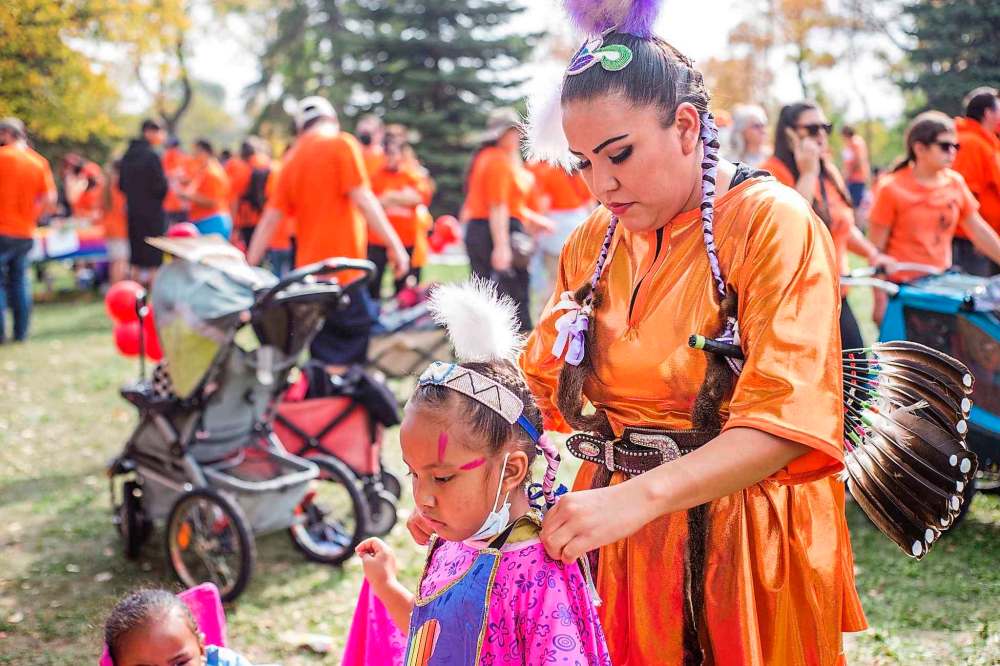
There are kids eating ice cream, kids petting dogs, kids tapping drums. Kids rolling down hills until their braided hair is adorned with yellow leaves, until the grown-ups have to rub the grass from their cheeks, until they come to rest at the bottom of the hill in a tangled and giggling mess, before running back up to try again.
Every child matters, the crowd says, whether by the words emblazoned on their shirts or the chants welling up from their throats. To think what they are fighting for are moments like these. Honouring the children who never got to live these moments and declaring, in unison, that no child should ever have their joy or their love stolen from them again.
Inside the tent, the emcee pauses the proceedings to make an announcement: two little girls have lost their parents, he says. He asks if anyone recognizes them. NDP MLA Nahanni Fontaine takes one of the girls by the hand. But it’s hard to hear from outside the tent and even harder to see, so for a while at least, there’s no reunion.

Yet these children are safe, they’re with people who care, they are protected. They are lost for a little while, perhaps, but their community is all around them. They are seen, they are held, they will go home to the family that loves them. And that is what all children deserve although, for far too long in Canada, a right not all were given.
As the powwow winds down, people begin to drift back to their cars, or their walk home. As they leave the park, the sound of the drums falls away from their ears, and then the sound of a thousand conversations. In the end, the last song that can be heard on the breeze, drifting from the park to the street, is the laughter of children.
melissa.martin@freepress.mb.ca
Our newsroom depends on a growing audience of readers to power our journalism. If you are not a paid reader, please consider becoming a subscriber.
Our newsroom depends on its audience of readers to power our journalism. Thank you for your support.



